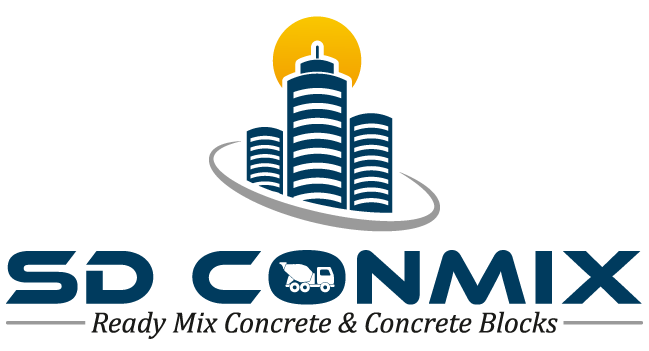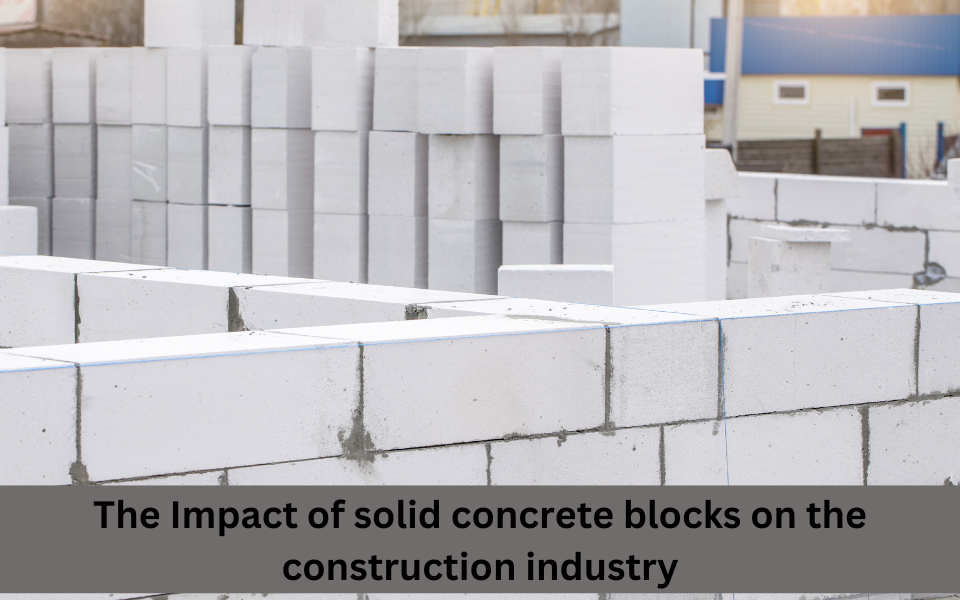Introduction
Concrete blocks are increasingly being used in buildings, taking the place of bricks.
Let’s explore the causes of this shift.
Load-bearing masonry walls, columns, and footings are typically built using solid concrete blocks.
Because of their various advantages and the fact that they bear predominantly compressive loads, these load-bearing structures are the preferred option for high-raised buildings.
Let’s start by defining quality in the context of concrete blocks.
Compressive strength and water resistance are two of the main quality indicators used to assess concrete block quality.
These two standards for quality are easily met by top concrete blocks.
Compressive power
The capacity of a material or structure to support loads on its surface without cracking or deflection is known as compressive strength. A material’s size tends to diminish under compression, but it elongates under tension. The cube test, also referred to as the concrete test, provides data on all of the characteristics of concrete. Concrete’s compressive strength for normal construction ranges from 15 Mega Pascal (2200 pounds per square inch) to 30 Mega Pascal (4400 pounds per square inch), with higher values for significantly raised commercial and industrial structures.
Water resistance.
The ability to resist water is the second characteristic of concrete blocks. Blocks made of concrete are relatively water-resistant. How can I check this?
3 concrete blocks should be submerged in fresh, room-temperature water for 24 hours. After that, the blocks must be removed from the water and placed on a coarser wire mesh so they can drain.
Once the surplus water has evaporated, weigh each one separately. The blocks must be dried in a vented oven after being weighed for at least 24 hours and until two subsequent weighings are performed at intervals of 2 hours and indicate an incremental weight loss of no more than 0.2%.
Other advantages of concrete blocks
Concrete surfaces are effective noise barriers because they can both reflect and absorb sound waves.
Because concrete has natural components that make it robust and able to withstand the test of time, like the majority of concrete-made structures, and because concrete tends to get stronger over time, concrete blocks make excellent building materials, security barriers, and block walls.
Moreover, concrete blocks are quite excellent in absorbing and storing heat due to their great thermal mass. Whereas a wooden construction will succumb to flames fast, a concrete block building can withstand them and slow the spread of fire. To protect the safety and integrity of your project, all our concrete blocks at SD Conmix are fire-resistant, boasting a fire safety grade of A1, the very highest rating available.
Environmentally friendly options can have a high cost. Since they enable quick construction on every project, concrete blocks are still reasonably priced. This saves time and money on all types of projects.
Concrete blocks can assist in keeping a building warm in the winter and cool in the summer when they are properly designed and built. This makes it feasible for the structure to attain the highest levels of long-term energy efficiency while also improving its overall sustainability and low operating costs.
Conclusion
To sum up, the features of concrete blocks have revolutionized the construction industry. Concrete blocks thus are best suited for construction and are the best choice for high-raised buildings. If you are looking for the best concrete blocks, the manufacturer that you can trust is SD Conmix.

